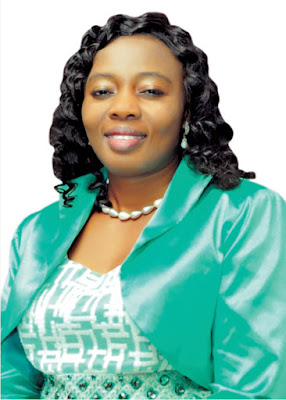The State Commissioner for Women Affairs & Social Welfare, Dr. Glory Emmanuel Edet, has expressed deep appreciation to the United States Agency for International Development (USAID) and Association for Reproductive and Family Health (ARFH) for partnering the Akwa Ibom State Government in their support for vulnerable children in the State.
Dr. Edet stated this during the Local Partners Initiative in Nigeria (LOPIN-Region 1) for Orphans and Vulnerable Children (OVC) Project Stakeholders Meeting, organised by USAID/ARFH, in collaboration with the Ministry of Women Affairs & Social Welfare, held at the Women Development Centre, along IBB Way in Uyo, the State Capital.
She said that prior to this time, the Ministry of Women Affairs & Social Welfare had battled with the growing OVC problem since year 2007, describing their technical support and excellent management as being very obvious throughout the lifespan of other projects implemented by them.
Represented by the Permanent Secretary, Ministry of Women Affairs & Social Welfare, Mrs. Cecilia Inyang, the Commissioner reminded all of the fact that the Child Rights Law ensures every child, male or female, has the right to receive basic education, basic health, basic nutrition services and legal protection, amongst others.
Describing children as the building blocks upon which the Nation’s future lies, the Women Affairs Boss expressed delight that the Partners were working towards ensuring the wellbeing and welfare of Orphans and Vulnerable Children (OVC) in the State, thereby, guaranteeing them a secured future.
She used the forum to implore all and sundry to join hands in ensuring a secure and bright future for children through providing integrated care and support to, as well as check the growing, but unfortunate army of OVCs in the State.
Introducing the LOPIN-Region 1 OVC Project, USAID Representative, Dr. Temitayo Odusote, stated that the Project is a local partners’ initiative with the sole aim of improving the wellbeing of OVC in the State.
Dr. Odusote maintained that the Project is specifically focused on enhancing accelerated access of OVCs (with priority on those due to HIV/AIDS) to basic services, while their families benefit from economic empowerment interventions, to enable them to effectively perform their roles as the first line providers for their children/wards.
Giving an overview of USAID/LOPIN-Region 1 Project in Akwa Ibom State, the Chief of Party, Dr. Iyabode Olusanmi, disclosed the activity and work plan period of the Project to be between 5th August, 2014 to 4th August, 2015/January to September, 2015 and that LOPIN is inclusiveness in programming for orphans and vulnerable children in selected States of Lagos, Akwa Ibom and Rivers.
According to Dr. Olusanmi, LOPIN’s goal is to mitigate the impacts of HIV/AIDS on children and families with specific focus of improving the wellbeing and welfare of OVCs through accelerated and sustainable multi-sectoral approach.
She stated the Project’s objectives to include: improve the systems and structures at community, local government areas and State in providing responsive care, protection and support services to OVCs in the three States; improve organizational and technical capacity of local partners to offer services to OVCs and their families and to facilitate local Nigerian partners to engage more effectively with LGAs and private sector partners (PPP).
She ended her presentation with a reminder to all that OVCs being our children, have the rights to survival, development and protection; calling on all stakeholders and, indeed, the general public to make the orphans and vulnerable children’s lives worth living.
Also giving the activities of Family Health International (fhi360)/Strengthening Integrated Delivery of HIV/AIDS Services (SIDHAS), the State Programme Manager, Dr. Frank Eyam, disclosed that the USAID-SIDHAS community interventions ongoing in Akwa Ibom State are in four phases of implementation, and the areas of support are educational, psychosocial, nutritional, child protection, household economic strengthening and health.

No comments:
Post a Comment